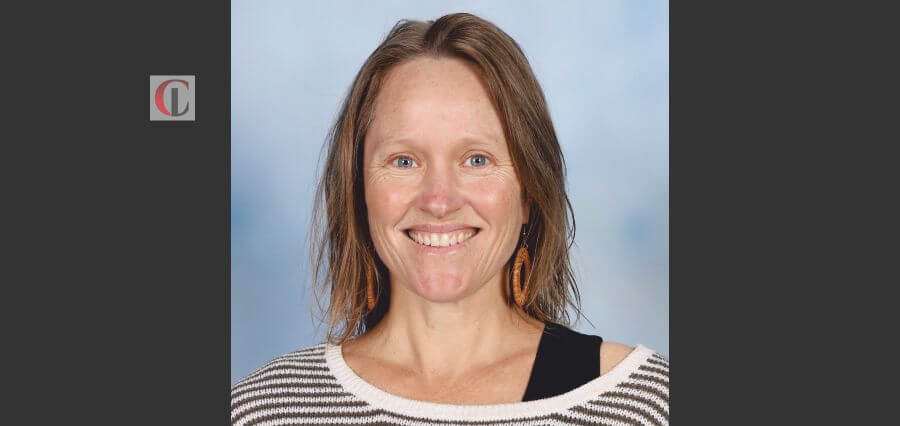Meg Bailey, presently serving as the Director of Learning – Student Agency and Authentic Learning at Templestowe College, deferred pursuing a leadership role until three years ago. This decision was influenced by her commitment to working part-time while raising three children. It was only recently that Meg assumed the role of leader within the Science Department.
After obtaining a Science degree from the University of Melbourne, focusing on Earth Science and completing an Honours year in Meteorology, Meg embarked on her professional journey as a weather forecaster at the Commonwealth Bureau of Meteorology.
A natural affinity for education, inherited from her teacher parents, manifested in voluntary teaching roles, from sports coaching to supporting refugees with English, eventually leading her to transition into teaching in 2004. Meg’s zest for education saw her teaching in Canberra and Darwin before settling at Templestowe College, where she has passionately taught mathematics and general sciences for the past 8 years.
Currently holding the position of Learning Specialist, Meg strikes a balance between classroom teaching, mentoring peers and participating in strategic school meetings. Her leadership extends beyond the classroom, actively promoting the incorporation of Indigenous knowledge and culture in curricula and contributing to the school’s Narragunnawali Reconciliation Action Plan committee.
Meg’s journey exemplifies a steadfast commitment to education, sustainability and social justice, marking her as a pivotal advocate for students and staff at Templestowe College. Dive deeper into the transformative world of education and discover how she is shaping the future of learning.
Tell us more about your company and its mission and vision.
Ten years ago, Templestowe College faced a critical decision – whether to close due to declining enrolment or embark on a radical transformation. A dedicated group of parents and teachers, seeking a fresh approach, appointed alternative educator Peter Hutton as principal. Hutton initiated a transformative dialogue with parents and students to redefine the school’s identity. This led to the birth of “consistencies,” notably the principle that ‘Yes is the default,’ fostering agency and positive change within the school community.
The school embraced a student-centric philosophy, dismantling year levels and allowing students to shape their learning experiences. Subjects like Reptiles, Café and Baking, Permaculture, Lego Elective, and Game Up emerged alongside traditional offerings. Student involvement extended to decision-making processes, including faculty selection panels.
The school’s leadership prioritizes cross-curricular project-based learning, focusing on active citizenship, problem-solving, time management, ICT, communication, and teamwork. The Year 7 curriculum tackles real-world issues, while older students engage in activities like mock United Nations forums and a ‘TC Shark Tank,’ promoting social entrepreneurship.
Meg is a part of a dedicated leadership team that collaboratively implements these programs. The school’s innovative practices have garnered international recognition and invitations to present at conferences here and overseas and in 2023 they received two of the most prestigious awards in education; Meg was awarded ‘Australian Teacher of the Year – Government’ and Templestowe College crowned ‘Australian School of the Year – Government’. These accolades highlight the school’s commitment to personalized education and student empowerment.
What methodologies do you implement that contribute to new growth opportunities?
Although I do not see myself as professionally ambitious, I have in recent years felt ready to apply for roles that allow me to advocate for and progress ideas that I think are interesting, relevant and important and I think my actions such as successful implementation of school-wide projects like PBL and effective management of students and staff have helped generate trust and support from leadership within the school.
I know that I can come across as ‘high energy’ and I have learnt over the years to not overwhelm others with my enthusiasm and to be more strategic with pitching new ideas such as thoroughly preparing resources and scheduling adequate time to properly onboard all stakeholders. It’s also important to find allies who share your vision and delegate tasks within teams so that not only is the work shared but there is a skill share and a sustainable succession plan.
Being in the state education system means that we are financially constrained and I am particularly good at finding ways to do things on a ‘shoe string’. We often call out to the local community for volunteer speakers and mentors or mimic programs ourselves that other wealthier schools might bring in private operators to run.
What strategies do you implement to promote gender diversity for various leadership positions at your company?
At TC we are very conscious of promoting inclusion and gender diversity. As such, all of our school leaders are trained in Merit and Equity through the Department of Education and we ensure all recruitment panels are diverse in gender. The fact that a number of women who hold roles of responsibility in our school are part-timers further demonstrates our commitment to supporting women to advance their careers.
In addition, we have talented women working within all departments of our school which promotes positive perceptions of gender diversity across areas that can be traditionally siloed such as Robotics and Design and Technology. Within my own classes I am particularly conscious of advocating that STEM is for everyone and diversity helps us find unique solutions to current and future problems.
What values do you incorporate to enhance the work culture of your company?
Success of school programs depends on teachers being able to plan, execute and evaluate them together. Setting up strong collaborative team culture therefore is incredibly important. We encourage our teams to meet regularly and our ‘default is yes’ philosophy encourages teachers to be creative and take initiative to implement ideas they are passionate about.
We also have an open-door policy so that staff are welcome to access support from school leaders like myself or participate in ‘learning walks’ to observe other classes. There is an implied assumption that staff are professional educators with the best interests of their students and the school community at heart, creating an environment of trust where creativity and positive relationships can thrive.
What, according to you, could be the next significant change in your sector? How are you preparing for the change?
In the face of a rapidly changing world, where global conflicts, climate change and local housing crises contribute to heightened concerns among young people, addressing post-COVID challenges like anxiety, school avoidance and depression becomes paramount. Schools must proactively prepare students for an uncertain future by focusing on both personal well-being and supporting diverse vocational or academic pathways.
Participating in the Victorian Academy of Teaching and Leadership’s Teacher Excellence Program in 2023 was a rewarding experience for me. This year-long program, centered around inquiry projects and workshops with industry leaders, affirmed that Templestowe College’s practices align with international best practices in education.
These experiences revealed areas for improvement at TC, prompting a focus on consistent goal-setting and reflection cycles to enhance students’ metacognition and growth mindset. Departing from traditional assessment approaches, TC pioneers a holistic method, involving students in co-creating courses and utilizing developmental rubrics that assess subject-specific skills, as well as broader competencies like teamwork and problem-solving.
In senior years, students enjoy flexibility, choosing between a vocational major or traditional VCE, often extending their VCE over 3 or 4 years to nurture personal passions. Notably, student-led subjects, like the Reptiles elective, showcase the transformative impact of entrusting students with leadership roles and coaching responsibilities, fostering both knowledge and leadership growth. This approach offers a compelling model for other schools seeking to innovate in education.
Where do you envision yourself to be in the long run and what are your future goals for your company?
At the moment I can’t imagine a better role for myself. I love the freedom I have to implement great projects and work every day with inspiring and talented colleagues and students. I hope to continue to develop programs that are relevant to young people and nurture the skills they need to be creative, agile, thoughtful and useful citizens and share these with other interested educators.
What advice would you give to the next generation of women leaders willing to venture into the modern business arena?
My advice for the next generation of women is to follow their passion and try lots of different things to develop a variety of skills and a strong sense of self. Go with what YOU want to do, not what others say you should do.




